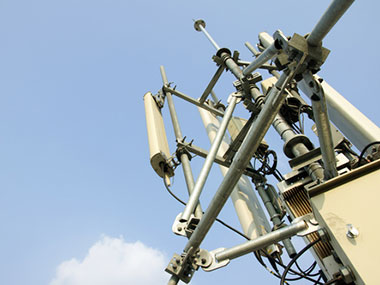The FCC Veers Off Course on Mobile Auctions

Image copyright Pathawi Boriboon
Congress ordered the FCC to get the auctions done quickly, and to design them to maximize the revenue they will generate. Estimates put the likely take at $7 billion, some of which will be spent building a nationwide mobile network for first-responders.
But with still no sign of a start date, the auctions have hit new roadblocks. Industry representatives and their proxies are flooding the FCC with proposals to rig the auctions in their own favor, claiming vaguely and implausibly that doing so will benefit U.S. consumers. A year and a half into the process, there’s little indication the agency will move forward any time soon.
Some of the complications are unavoidable. The novel “voluntary incentive auctions” Congress authorized will have to proceed in two distinct stages. First, over-the-air television broadcasters will be asked to offer some or all of their licensed frequencies, and to set a reserve price they would be willing to accept. The FCC will then review all the offers and, potentially, repack broadcast channels to create more usable blocks. Those blocks will then be auctioned to the highest-bidding mobile providers.
This innovative approach to spectrum reallocation is necessitated by an unprecedented set of circumstances. Demand for mobile services and devices continues to explode, a remarkable uptake that began in 2007 with the launch of both Apple’s iPhone and Google’s Android operating system. Between smartphones and tablets, there are now over half a billion mobile devices in the hands of U.S. consumers. Users are downloading 100 million software apps every day. And high-bandwidth video applications are proliferating.
Unfortunately — and for the first time in U.S. history — the FCC has almost no unassigned inventory of usable radio frequencies. The spectrum frontier has closed. To promote mobile technologies today and in the future, Congress and the FCC will need to find new ways to pry existing spectrum away from licensees who aren’t making efficient use of the frequencies they already hold, easing the retirement of older wireless technologies that have run their course.
As the number of U.S. homes that rely on over-the-air television signals falls below 10 percent, for example, broadcasters are a natural group with which to start (the federal government itself is another). As part of the 2009 transition to digital television, every broadcaster was given a new block of spectrum in the 600 MHz range. But few stations are making full use of their allocation. Some redundant channels, especially in crowded urban markets, are eager to exit the market but cannot do so because, under current law, existing licenses can only be transferred to other broadcasters.
The voluntary incentive auctions are intended to break these logjams. Under the terms of the legislation, participating broadcasters will split the auction proceeds with the Treasury — a financial carrot rather than a regulatory stick. And the law gives the FCC explicit permission to reclassify the reclaimed television spectrum for mobile broadband use.
Design of the voluntary incentive auctions is grinding along. But the FCC’s deliberative pace has proven an irresistible lure for some who see the auctions as a chance to make a fast buck. Sprint and T-Mobile have both asked the agency to twist the auctions in ways that would limit or exclude participation by Verizon and AT&T, effectively granting themselves new spectrum at below-market prices. The companies argue that the FCC should either set aside some of the reclaimed broadcast frequencies just for them or implement spectrum “caps” that could disqualify the larger providers from bidding at all.
The smaller carriers have been emboldened by an ill-considered filing from the Department of Justice, which in April reversed its longstanding and sensible hands-off position on broadband policy. The letter urged the FCC to design the auctions to direct spectrum to T-Mobile, Sprint and MetroPCS, on the new and dubious theory that larger carriers might otherwise bid up the prices just to keep the frequencies away from competitors.
Self-serving statements from the carriers aside, there is utterly no evidence that crippling spectrum auctions in the name of competition would accomplish any of the Obama administration’s admirable policy objectives for universal broadband. For one thing, both Sprint and T-Mobile recently completed mergers that significantly enhanced their spectrum holdings. Sprint absorbed Clearwire, and was then acquired by SoftBank, making it the largest spectrum holder in the country, one with an enormous cash infusion to spend on marketing. T-Mobile, at the same time, swallowed MetroPCS (and received beachfront spectrum as part of the break-up fee in its abandoned 2011 merger with AT&T). Both carriers already have unused network capacity for new and existing customers. Indeed, neither carrier bothered to participate in the last major spectrum auction held just five years ago.
T-Mobile’s proposed special cap on spectrum below 1 GHz is based on the technical canard that lower bands are more valuable. But today higher bands can achieve the same coverage as lower bands simply by deploying more small cells. (Getting local regulators to approve needed infrastructure construction is the real constraint here, as it is for lower band frequencies.) It also conveniently leaves Sprint, with massive holdings in the higher bands, off the hook.
What is true is that lower frequencies are still better at serving geographically dispersed customers in rural America. Unfortunately, neither Sprint nor T-Mobile has ever shown much interest in expanding their networks to rural customers, and there is nothing to suggest they’ve recently changed strategies. The assets T-Mobile acquired from MetroPCS, for example, are exclusively urban. And as part of its acquisition of Sprint-Clearwire, Softbank bragged it would cut more than 30 percent from Sprint’s capital budget — capital that would otherwise be used to build out its network.
On the other hand, the real risks of tampering with auction design are palpable. According to a recent analysis of past auctions sponsored by the trade group Mobile Future, restrictive and preferential auction rules have consistently translated to losses, not gains, for mobile users. Gerrymandering the voluntary incentive auctions, for one thing, would almost certainly translate to lower bids, effectively subsidizing the remaining bidders and reducing the government’s share of the proceeds. Worse, restrictions that ensure auctions don’t meet the reserve price set by the broadcasters means the auctions will fail. No spectrum, no revenue, no incentives. Everyone loses under that scenario — the most likely outcome of the kind of limits being proposed.
According to some lawmakers and legal scholars, limiting auction participation would also be illegal. Under a carefully negotiated compromise between Republicans and Democrats, the complex auction legislation makes clear that the FCC “may not prevent a person from participating in a system of competitive bidding” created to implement the voluntary incentive auctions. At the very least, the proposed restrictions will generate lawsuits aplenty, and with them even more delays. At worst, the FCC will be forced to start over again. While mobile customers suffer, the agency will just keep fiddling.
So how would directing broadcast spectrum to smaller mobile carriers help consumers? In a word, it wouldn’t.
What to do? For starters, the Senate would be wise to quickly confirm Tom Wheeler, President Obama’s nominee to replace Genachowski. In his confirmation hearings, Wheeler called the auctions a top priority, and promised to get the process back on track. “I think it is absolutely crucial that the incentive auction move on an expedited schedule,” he told the Judiciary Committee.
Wheeler should be given the chance to make good on his pledge, before the spectrum crisis brings the mobile revolution to an expensive and unnecessary halt. Open the auctions to everyone, and let the spectrum go to the highest bidder. That’s all the incentive that’s needed to ensure the frequencies get put to their best and highest uses — our uses, that is.
Larry Downes testified last month on FCC reform before both the House and Senate Commerce Committees. His forthcoming book, “Big Bang Disruption,” co-authored with Paul F. Nunes, will be published in December by Penguin Portfolio.














